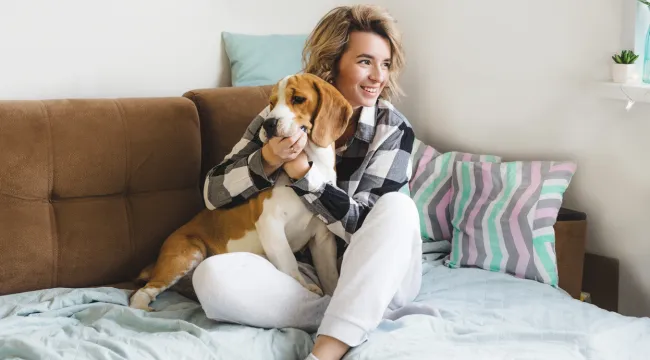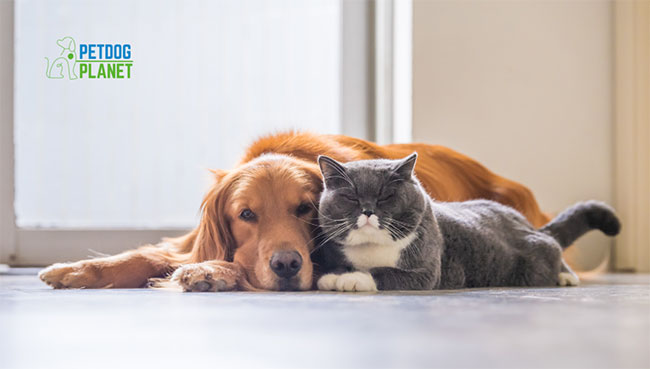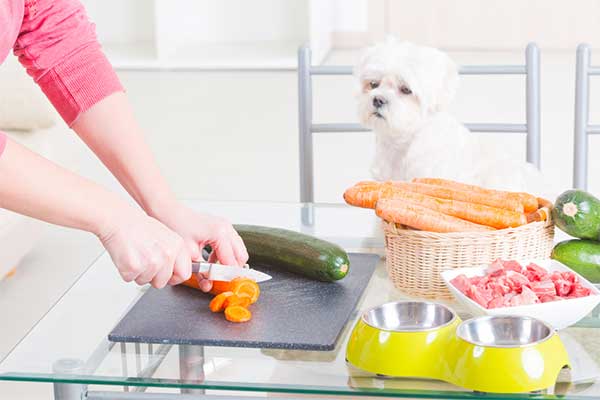
Bringing a new puppy into your life is a joyous occasion. These furry companions quickly become an integral part of your family, providing love, loyalty, and endless moments of happiness. Building a strong bond with your puppy is essential for a lifetime of companionship and mutual understanding. Here are some key tips to help you create a deep and lasting connection with your four-legged friend.
Puppy Socialization
Early socialization is the cornerstone of a solid relationship with your puppy. Just as a seasoned traveler navigates various cultures and customs, your puppy must learn to interact effectively with other dogs and people. By exposing your puppy to a wide range of experiences, individuals, and environments, you can help them develop essential social skills. A well-socialized puppy can adapt to diverse situations, laying the foundation for a lifetime of connection and companionship.
Socialization involves much more than merely introducing your puppy to different people and animals. It’s about exposing them to a wide array of sights, sounds, and experiences. Consider taking your puppy to the bustling city streets, serene parks, and quiet neighborhoods. Expose them to the sounds of traffic, children playing, and even the gentle rustling of leaves. These varied experiences help your puppy become adaptable and confident in various environments.
It’s not only about exposing them to different environments but also different people. Encourage interactions with people of varying ages, genders, and appearances. The more diverse the experiences, the more comfortable and sociable your puppy will become. Socialization isn’t just about ensuring your puppy is well-behaved in the park; it’s about creating a well-rounded and confident companion for life.
Exposing your puppy to other dogs is equally important. Dogs communicate primarily through body language, and they need to understand and interpret this language to engage effectively with their peers. By arranging playdates or attending puppy socialization classes, you give your puppy the opportunity to learn appropriate behavior and body language when interacting with other dogs. It’s during these interactions that they learn vital lessons in communication and play, which can significantly enhance their social skills.
Furthermore, early socialization helps in preventing behavioral problems later in life. Dogs that haven’t been adequately socialized may become anxious or aggressive when faced with new situations or unfamiliar individuals. Fear and anxiety can lead to destructive behaviors and aggression. Proper socialization significantly reduces the risk of such problems, contributing to a harmonious and lasting bond between you and your furry friend.
Dogs for Big Spenders and VIP Owners
There’s a unique group of individuals who know how to live life to the fullest, whether it’s by indulging in luxurious experiences or being a high roller online casino player. These big spenders and VIP people often seek the finest in everything, and that includes having a beloved canine companion by their side. Owning a dog isn’t just about companionship; it’s a reflection of their refined taste and commitment to the highest standards of care.
Just as these high rollers know when to place their bets and take calculated risks, they approach dog ownership with a commitment to providing the best for their furry friends. They spare no expense when it comes to premium dog food, luxurious accessories, and top-tier veterinary care. For them, owning a dog is an extension of their lifestyle, and they are willing to invest in their pet’s comfort and well-being.
Much like a player at a high roller online casino, who understands the value of expert advice, these individuals often turn to renowned dog trainers, behaviorists, and pet therapists to ensure that their canine companions receive the best training and care possible. They understand the importance of seeking professional guidance when needed.
However, it’s not just about extravagant expenditures. These big spenders and VIP owners also recognize the significance of quality time spent with their dogs. They engage in leisurely walks in the most picturesque parks, ensuring their dogs are not only physically healthy but also emotionally fulfilled. These walks are a testament to their commitment to bonding with their four-legged companions, as they value the shared experiences and the unique connection they bring.
Positive Reinforcement
Positive reinforcement is a powerful tool for bonding with your puppy and fostering desirable behavior. It involves rewarding your puppy for good behavior with treats, praise, and affection. This approach is based on the idea that rewarding your puppy for positive actions will increase the likelihood of those behaviors recurring.
When your puppy associates your presence with positive experiences, it strengthens their bond with you. Here are some key points to consider:
- Use Treats and Praise: Offer small, tasty treats when your puppy behaves well, and shower them with verbal praise and affection. This not only reinforces the good behavior but also creates a positive association with you as the source of rewards.
- Consistency is Key: Be consistent in your rewards. Ensure that everyone in your household uses the same cues and rewards for consistent training. This consistency builds trust and avoids confusion for your puppy.
- Timing Matters: Timing is crucial in positive reinforcement. Reward your puppy immediately after they display the desired behavior so they can make a clear connection between the action and the reward.
- Avoid Punishment: Positive reinforcement focuses on rewarding good behavior rather than punishing bad behavior. Punishment can lead to fear and anxiety, damaging the bond you’re trying to build.
- Adjust to Your Puppy’s Preferences: Every puppy is unique. Some may be highly motivated by treats, while others respond more to toys or play. Pay attention to what your puppy values the most and tailor your rewards accordingly.
Effective Communication and Trust
Effective communication is at the heart of any strong bond, and the same holds true for your relationship with your puppy. Building trust and understanding between you and your furry friend is essential for a harmonious partnership. By learning to read your puppy’s signals and using clear, consistent cues and commands, you create an environment where your puppy feels secure and understands what’s expected of them. Understanding your puppy’s body language, such as tail wagging, ear position, and facial expressions, allows you to respond appropriately to their needs and emotions. When your puppy associates you with positive experiences, such as treats, play, and affection, they’re more likely to trust you and form a deep emotional connection. Patience is key, as building trust takes time, and it’s important not to get frustrated when your puppy makes mistakes. Instead, focus on teaching and guiding them. Effective communication is a two-way street, and by practicing active listening and being responsive to your puppy’s needs, you lay the foundation for a strong and lasting bond, where your puppy feels secure, understood, and loved.
Regular Exercise and Play
Regular exercise and play are vital components of bonding with your puppy and ensuring their overall well-being. These activities go beyond mere physical exertion; they are essential for nurturing a strong and lasting connection between you and your furry friend.
Exercise provides both physical and mental stimulation for your puppy. It helps keep them in good shape while allowing them to release excess energy. Beyond the physical benefits, exercise is mentally stimulating, introducing your puppy to new environments and experiences. This exposure enhances their adaptability and problem-solving skills, contributing to their overall development.
Playtime is a special occasion for quality bonding. Whether you engage in a game of fetch, tug-of-war, or hide-and-seek, these activities create lasting memories and strengthen your relationship. Your puppy comes to associate you with fun and adventure, deepening their connection with you.
Consider your puppy’s specific needs when planning exercise and play. Different breeds have different exercise requirements, and puppies, in general, need more playtime than adult dogs. Tailoring these activities to your puppy’s individual preferences ensures that they enjoy the experience, further enhancing your bond.
Through play, your puppy learns to trust you as their playmate and protector. It’s during these playful interactions that cues and commands are reinforced, promoting effective communication between you and your furry companion. Playtime is also an excellent opportunity for socialization. Playdates with other dogs and interactions with various people during these sessions help boost your puppy’s confidence and sociability.
In essence, regular exercise and play are not just about physical activity; they play a significant role in forming a deep emotional connection. It’s a time to have fun, create unforgettable moments, and build trust. Your puppy learns to rely on you for exciting adventures and security, ultimately strengthening your bond.
Read More: Dog and Child Bond | What are the benefits?
Patience and Consistency
Building trust and understanding between you and your puppy takes time. It’s important to be patient, especially during the early stages of training and socialization. Puppies are like sponges, absorbing new information and experiences, but they also make mistakes and need guidance. When your puppy misbehaves or doesn’t immediately grasp a command, it’s essential to remain patient and avoid frustration. Expressing anger or impatience can erode the trust your puppy has in you and create a negative atmosphere.
Consistency in your expectations and rules is equally vital. Dogs thrive on routine and structure. When your puppy understands what’s expected of them and the rules of the household are consistent, they feel secure and confident. If different family members have varying rules or approaches to training, it can lead to confusion for your puppy. Everyone involved in your puppy’s care and training should be on the same page and use consistent cues and commands.
Maintaining consistency in training also helps your puppy learn more effectively. They begin to associate specific cues with actions and behaviors, making it easier for them to respond appropriately. This consistency builds a strong foundation for your relationship, where your puppy knows what to expect and can trust in your guidance.



